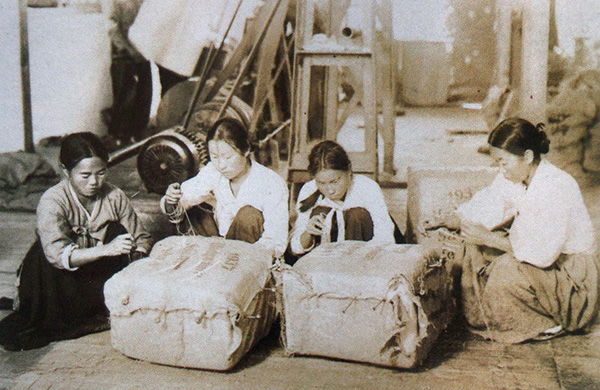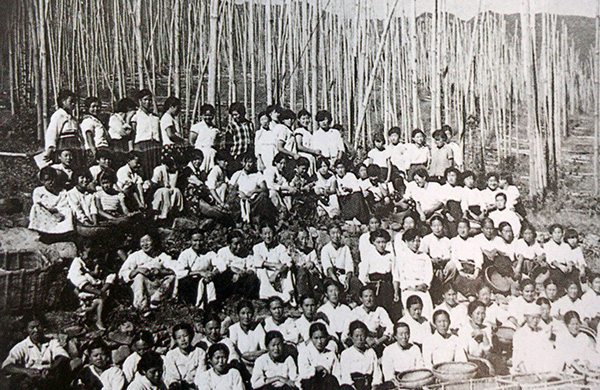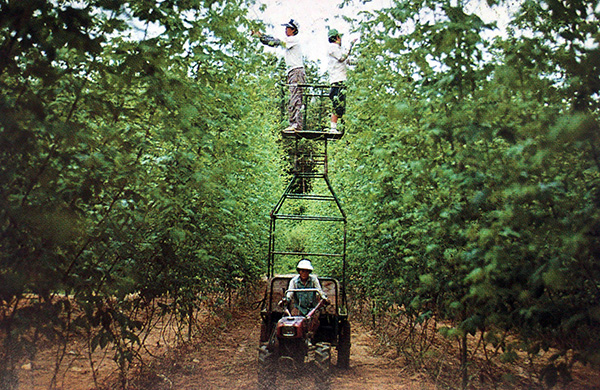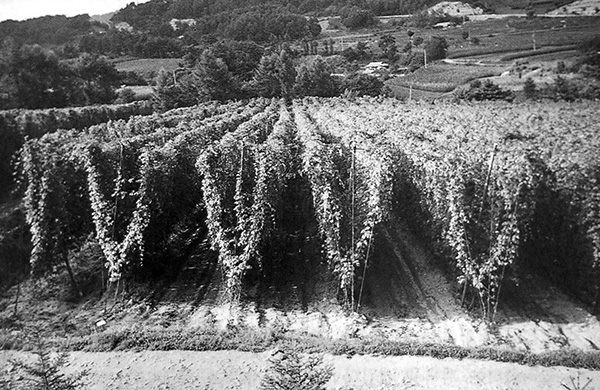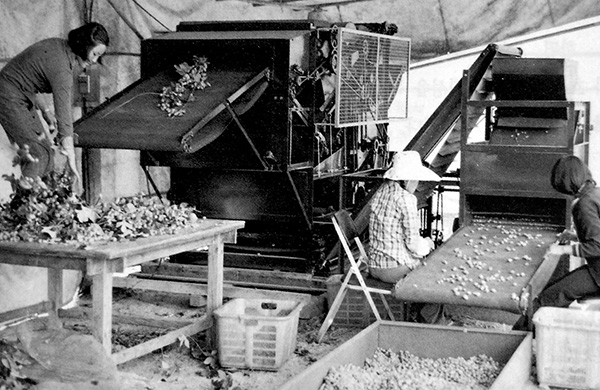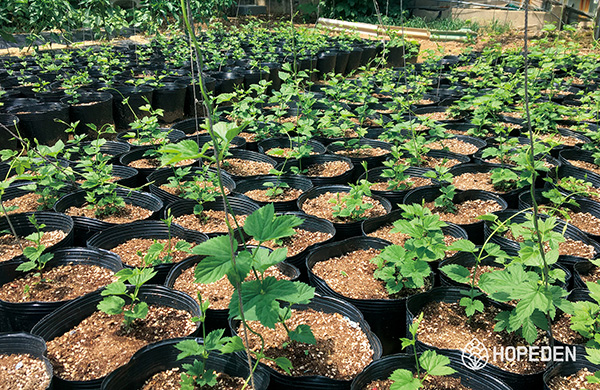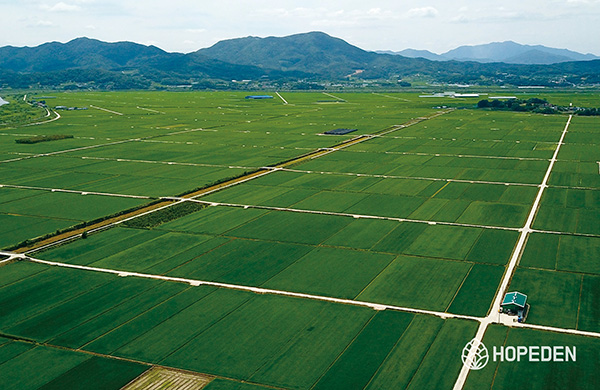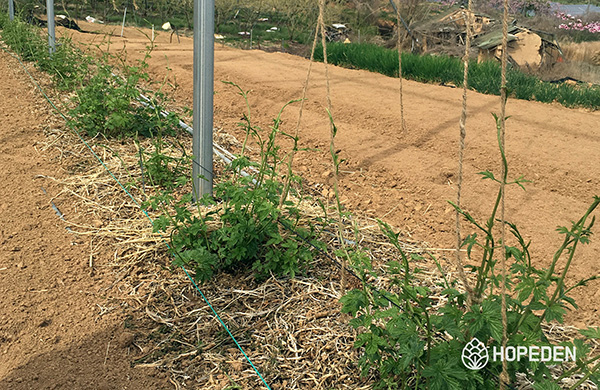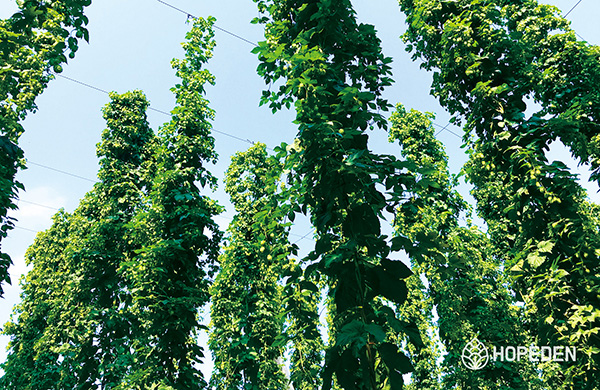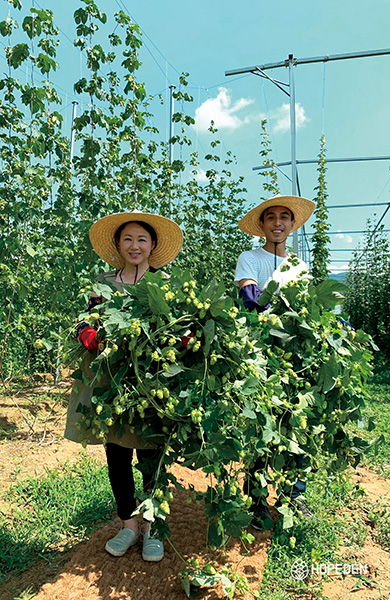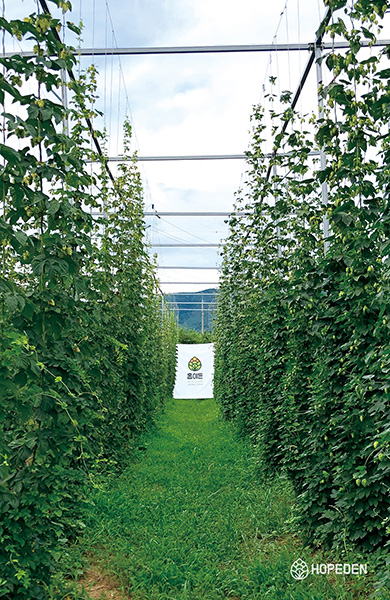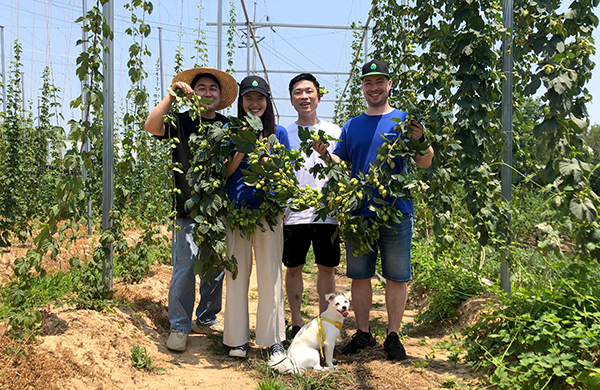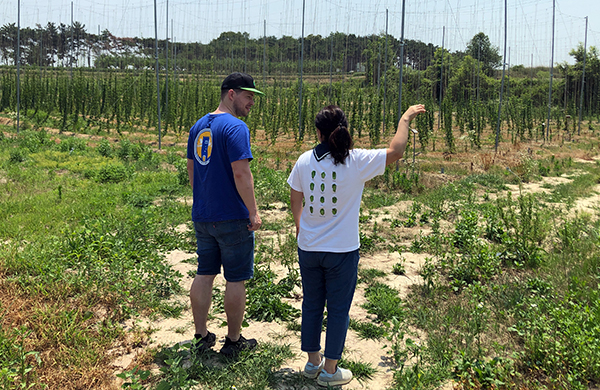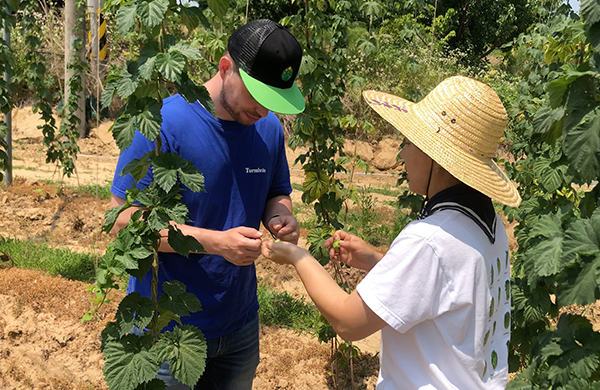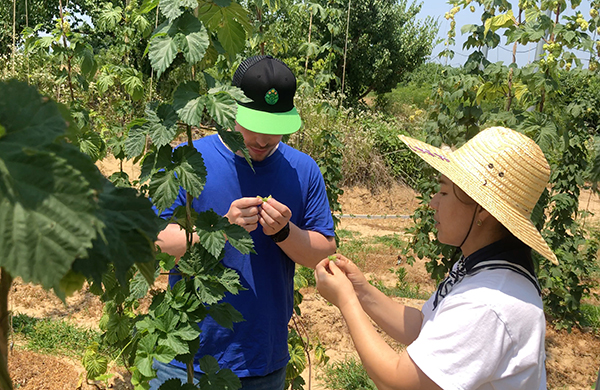If you say that hop farming is easy, you've either been lucky or you don't know much about hops. Every year I learn something new while growing hops. The road that others do not take is lonely and difficult.
Just like destiny, I got to know Hop, and I am continuing my life with Hop. Until the day when hops become the hope of Korean agriculture...
Plant today, open tomorrow.

The history of hop farming in Korea began with beer. Hops, which began to be cultivated in North Korea in the early 20th century, were also cultivated in South Korea at the end of Korea War 6.25. and in the 1980s, hop business hit the production record of 460 tons on dry basis. However, hops rapidly disappeared from this land due to complex reasons such as the industrial background of the 1990s and the weakness of saving of labor, and then domestic beer became entirely dependent on imported hops.
Korea has become a developed country through rapid economic growth. Could it be that we lost something precious while fast growing period of economy? I would like to talk about the hope of Korean agriculture, not just one crop, Hop. Hopeden, we, will inherit the baton of the Korean hop farming discontinued.

Hopeden Farm, located in the western part of Uiseong-gun, Gyeongsangbuk-do, grows hops, the main ingredient of beer. Uiseong is located in the center of Korea and can be accessed from anywhere within 3 hours in South Korea. In addition, owing to Daegu Airport relocation project, the gateway in the central region will be opened that not only Jeju Island but the world seeks.
The West Uiseong is a plain area covering 1,000 hectares and is famous for rice farming. However, the demand for rice is declining due to the national diet changes. Hop cultivation, like rice, can be mass-produced through mechanization and is a high value-added industry. Uiseong has an ideal location for self-sufficiency in hops.
We are dreaming of the revival of domestic hop glory, which have lost their reputation, and also manufacture and sell local craft beer and hop processed foods using hops. Our goal is to build ‘Uiseong Hop Valley’ and ‘Beer City Uiseong’ by developing tourism products related to hops and for that we are making efforts everyday.
Currently, 12 varieties of hops are grown in a hop field of 2 acres. In collaboration with HoppyHoliday, a craft beer workshop, the home brewing program using fresh hops is gaining popularity, and the number of people learning about hops is increasing every year. We also offer a unique event, the Hop Festival, held in July, the harvest season. Participants can enjoy farming work related to hop cultivation as a game and enjoy live music performances in the fresh hop fields. This festival is intended to provide an opportunity for many people to understand agriculture and the region.
With the launch of “Uiseong Lager” and “Show Me the Fresh Hop IPA” using domestic hops, there is good news that interest and demand for domestic hops will increase among the Korean craft breweries. The road to stable hop production is still long and difficult. There are still several problem sets to be solved, such as increasing productivity based on mechanization and labour saving farming, quality improvement through standardization of component analysis of alpha acid, beta acid and oil content and advancement of processing technology, development of plant breeding according to beer trends, and also securing sales markets.
In order to start the Hop industry once again in Korea, lots of attention and support from the central government as well as local governments are essential. Plant today, open tomorrow.
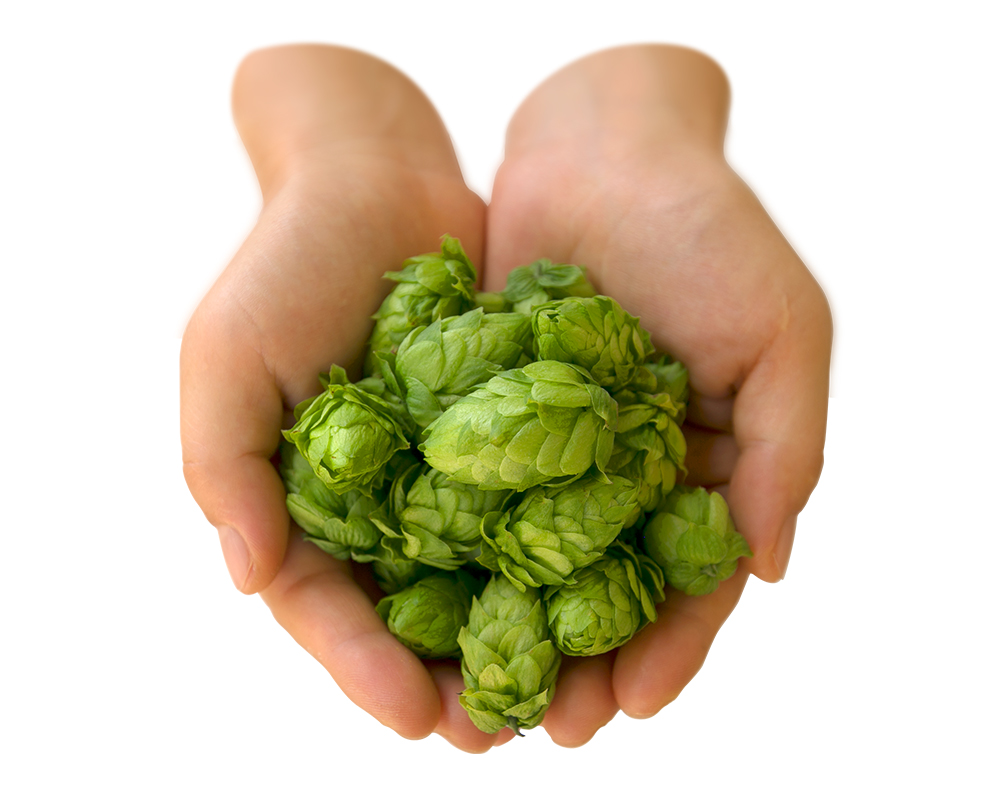

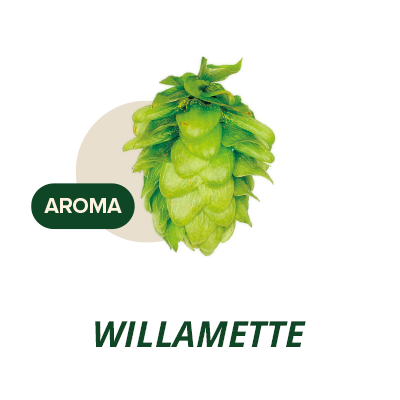
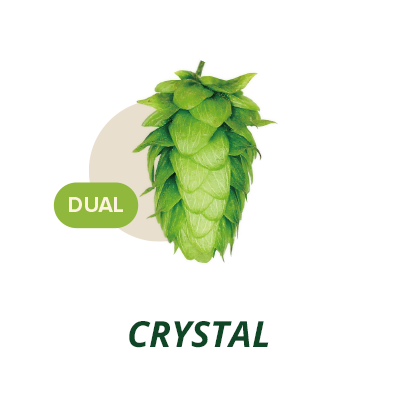
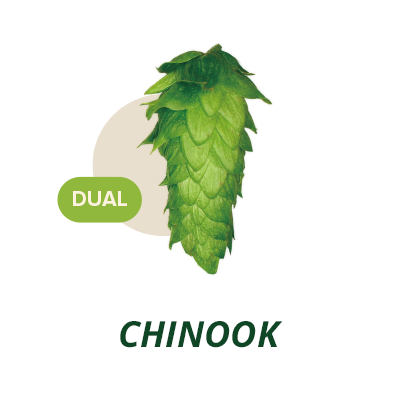
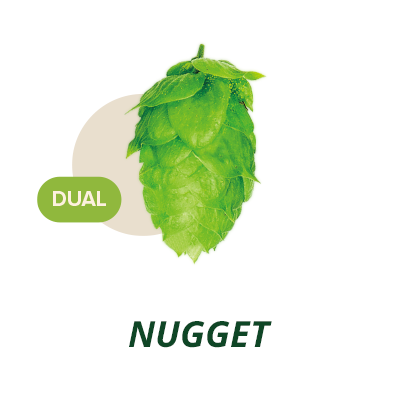
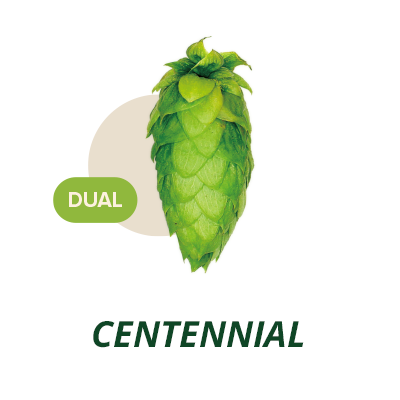
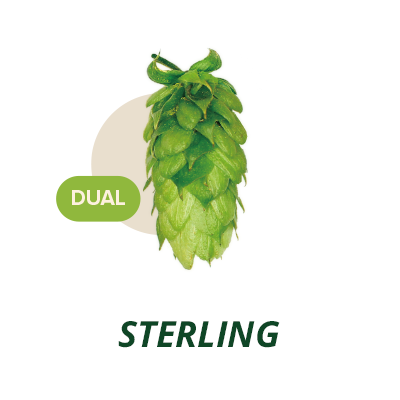
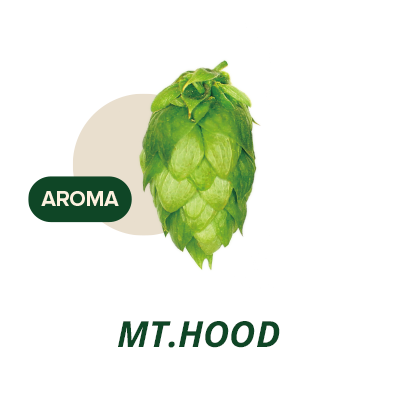
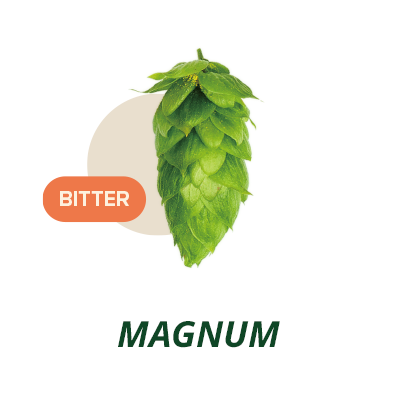
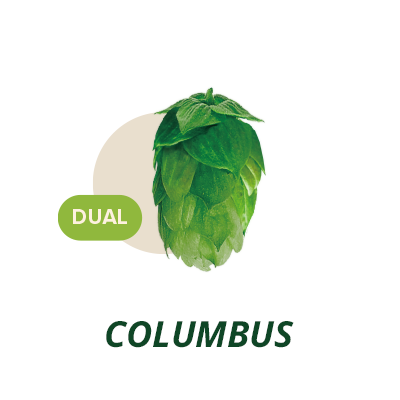
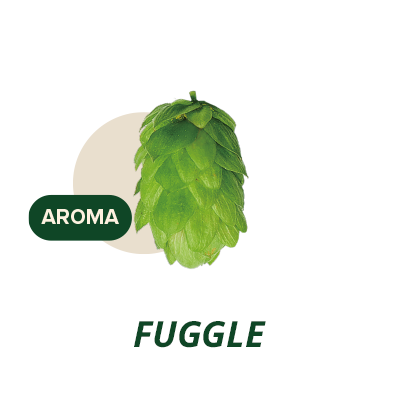

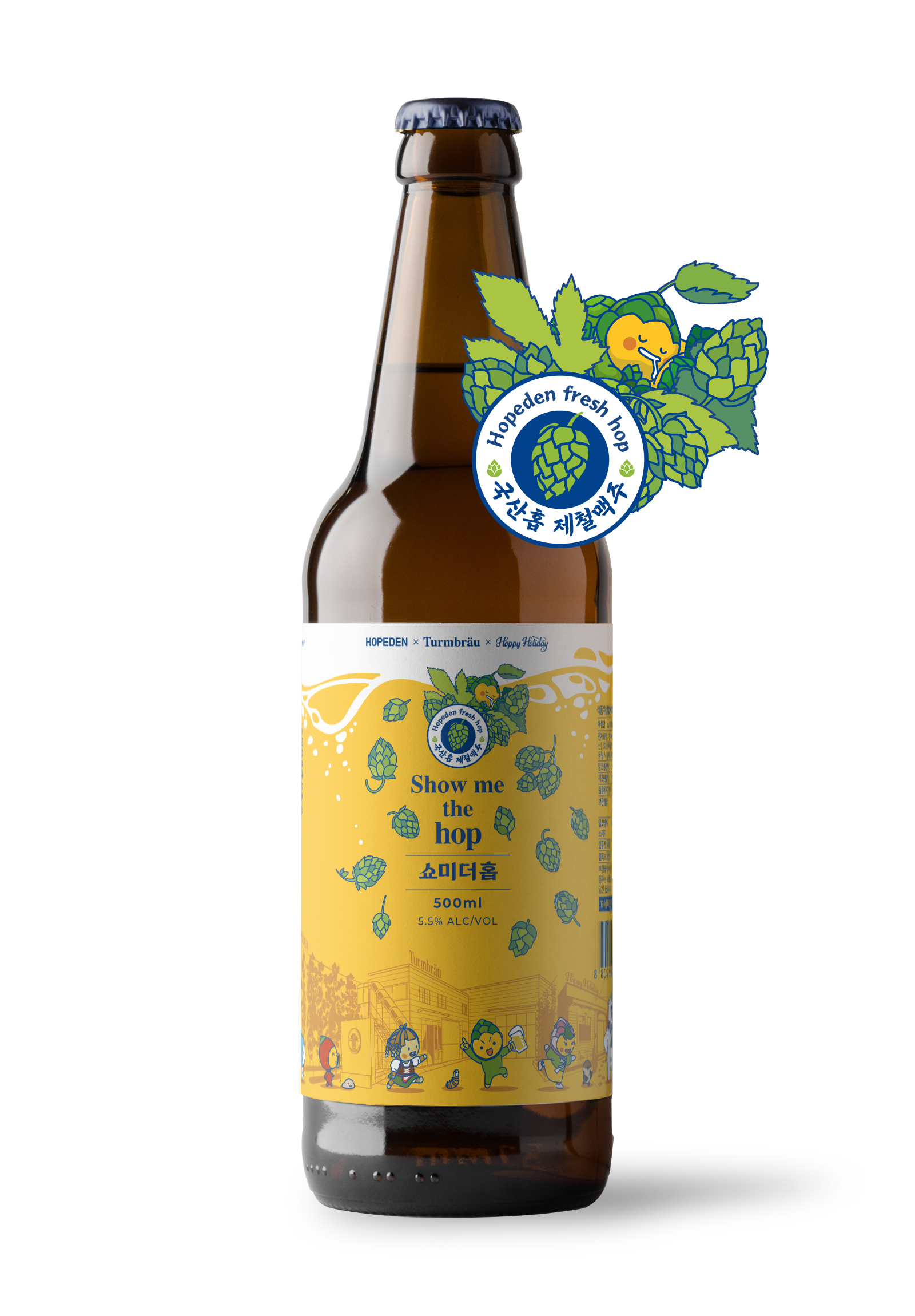
For Hopeden, this fresh hop beer is the first achievement in five years since we tried domestic Hop in 2018, it did take longer than expected. In the third year, we became associated with Kim Ye-ji, CEO of HoppyHoliday, and started to promote the existence of Korean hops with homebrewing craftbeer. And two years later, in a joint collaboration, ‘Show Me the Fresh Hop’ was brewed at Turmbräu and HoppyHoliday is at the center of it.
Hopeden, we are a farmer. It's the role of growing high-quality agricultural products well. You know, the farming cycle is one year. So we've grown hops only five times. The process of getting to know a crop called hop takes a long time and it also takes another long time to promote the existence and value of domestic hops. Thankfully, in our case, we were able to advance that time a lot because of the Hoppyholiday and the ideal collaboration. Nevertheless, it took five years till to meet fresh hop brewed beer. So what's going to happen in the future? Starting with this time of joint collaboration of Turmbräu and HoppyHoliday, there is a lot of interest in domestic hops and talks of possibilities, potential demand will increase in coming years.
